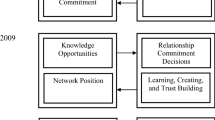Abstract
With the evolution of an international free trade regime in telecommunications the economic significance of technical standards has been broadly acknowledged. But their evaluation has remained somewhat diffuse due to the ambivalent nature of standards that can facilitate as well as impede international trade. Focussing on the World Trade Organization (WTO) this article examines the role of technical standards and the principles according to which standards and standardization organizations are assessed. The WTO’s view is extremely formal and restricted and remarkably mismatched with the contemporary hybrid international standards regime.
Similar content being viewed by others
References
Beviglia Zampetti, A. (2000). Market Access through Mutual Recognition: The Promise amd Limits of GATS Article VII. In: Sauvè, P. & Stern, R. M. (eds.), Gats 2000. New Directions in Services Trade Liberalization. (pp.283–306). Washington D.C.: Brookings Institution Press.
Bhagwati, J. N. & Hudec, R. E. (Eds.) (1996). Fair Trade and Harmonization: Prerequisites for Free Trade? Cambridge, MA.: MIT Press.
Blankart, C. B. & Knieps, G. (1995). Market-Oriented Open Network Provision. Information Economics and Policy 7, 283–296.
Blouin, C. (2000). The WTO Agreement on Basic Telecommunications: A Reevaluation? In: Telecommunications Policy 24, 135–142.
Brunsson, N. & Jacobsson, B. (2000). A world of standards. Oxford: Oxford University Press.
Casella, A. (1996). Free Trade and Evolving Standards. In: Bhagwati, J.N. & Hudec, R. E. (Eds.): Fair Trade and Harmonization. Prerequisites for Free Trade? Vol. 1. (pp. 119–156) Cambridge MA: MIT Press.
CEN/ISSS (1999). CEN/ISSS Survey of Standards-Related Fora and Consortia, edition 3.1, available at http://www.cenorm.be/isss/survey.htm.
David, P. A. (1985). Clio and the Economics of QWERTY. American Economic Review 75, 332–337.
Evenett, S. J. & Hoekman, B. M. (2000). Government Procurement of Services and Multilateral Disciplines. In Sauvè, P. & Stern, R. M. (Eds.), Gats 2000. New Directions in Services Trade Liberalization. (pp. 143–164) Washington D.C.: Brookings Institution Press.
Farrell, J. & Saloner, G. (1986). Standardization and Variety. Economics Letters 20, 71–74.
Knieps, G. (2000). Der Disaggregierte Regulierungsansatz der Netzökonomie. In Knieps, G. & Brunekreeft, G. (Eds.) Zwischen Regulierung und Wettbewerb. Netzsektoren in Deutschland. (pp. 7–21) (Heidelberg: Physica-Verlag).
Lehr, W. (1996). Compatibility standards and industry competition: two case studies. Economics of Innovation and New Technology 4, 97–112.
Leibenstein, H. (1984). On the Economics of Conventions and Institutions: An Explanatory Essay. Zeitschrift für die gesamte Staatswissenschaft (Journal of Institutional and Theoretical Economics) 140, 74–86.
Liebowitz, S. J. & Margolis S. E. (1999). Winners, Losers & Microsoft. Oakland, CA: The Independent Institute.
Metcalfe, J. S. & Miles, I. (1994). Standards, Selection and Variety: An Evolutionary Approach. Information Economics and Policy 6, 243–268.
Nicolaïdis, K. (1996). Mutual Recognition of Regulatory Regimes: Some Lessons and Prospects. In: OECD (Ed.): Regulatory Reform and International Market Openness. (pp. 171–203) Paris: OECD.
NRC (National Research Council (US)). (1995). Standards, Conformity Assessment, and Trade. Washington, DC: National Academy Press.
Rada, R. (2000). Consensus Versus Speed. In Jakobs, K. (Ed.) Information Technology. Standards and Standardization: A Global Perspective. (pp. 19–34) Hershey: Idea Group Publishing.
Raymond, E. (1999). The Cathedral and the Bazaar. Knowledge, Technology & Policy 12 (3), 23–49.
Schmidt, S. K. & Werle, R. (1998). Coordinating Technology. Studies in the International Standardization of Telecommunications. Cambridge, MA: MIT Press.
Stern, P. (1996). The Trans-Atlantic Business Dialogue: A New Paradigm For Standards and Regulatory Reform, Sector by Sector. In: OECD (ed.): Regulatory Reform and International Market Openness. (pp. 155–163) Paris: OECD.
Warren, T. & Findlay, C. (2000). Measuring Impediments to Trade in Services. In: Sauvè, P. & Stern, R., M. (Eds.), Gats 2000. New Directions in Services Trade Liberalization. (pp.57–84) Washington D.C.: Brookings Institution Press.
Werle, R. (1997). Technische Standardisierung im deregulierenden Europa. In: Schenk, K. E., Schmidtchen, D. & Streit, M. E. (Eds.), Jahrbuch für Neue Politische Ökonomie, Bd. 16: Neue Politische Ökonomie der Integration und Öffnung von Infrastrukturen. (pp. 54–80). Tübingen: J.C.B.Mohr.
Werle, R. (1999). Conflict or Peaceful Co-existence? Standards Organizations on a Global Scope. In: Hesser, W. (Ed.), Standardization — Challenges for the Next Millennium. Second Interdisciplinary Workshop on Standardization Research, Proceedings. (pp. 40–60) University of the Federal Armed Forces, Hamburg, May 1999.
Werle, R. (2001a). Institutional Aspects of Standardization. Jurisdictional Conflicts and the Choice of Standardization Organizations. In: Journal of European Public Policy 8(3), 392–410.
Werle, R. (2001b). Standards in the International Telecommunications Regime. HWWA Discussion Paper, Hamburg: Hamburgisches Welt-Wirtschafts-Archiv (HWWA), forthcoming.
Willetts, P. (2000). Representation of Private Organizations in the Global Diplomacy of Economic Policy-Making. In: Ronit, K. & Schneider, V. (Eds.), Private Organizations in Global Politics. (pp. 34–58) London: Routledge.
Wilson, J. S. (1997): Telecommunications Liberalization: The Goods and Services Connection. In: Hufbauer, G. C. & Wada, E. (Eds.), Unfinished Business: Telecommunications after the Uruguay Round. (pp. 63–85) Washington D.C.: Institute for International Economics.
Author information
Authors and Affiliations
Additional information
He is co-author with Susanne Schmidt of Coordinating Technology: Studies in the International Standardization of Telecommunications. Cambridge, MA: The MIT Press, 1998. His research is focused on the institutional conditions and the structural consequences of technological and scientific innovations, in particular in the information and telecommunications technology industry: this includes the development and standardization of telecommunications and data networks, the Internet in particular, and the structural and social consequences of the developments in those areas.
Rights and permissions
About this article
Cite this article
Werle, R. Standards and standards organizations in the international free trade regime. Know Techn Pol 14, 127–140 (2001). https://doi.org/10.1007/s12130-001-1020-7
Issue Date:
DOI: https://doi.org/10.1007/s12130-001-1020-7




